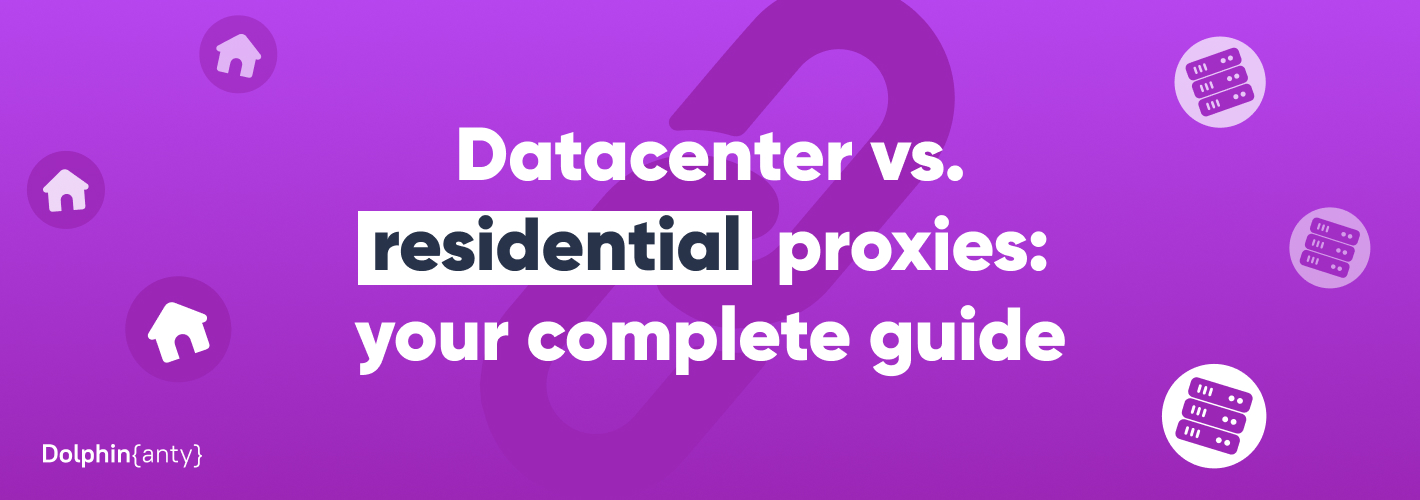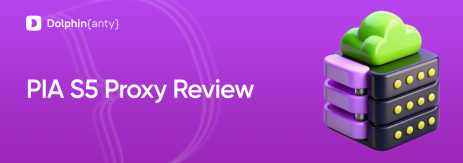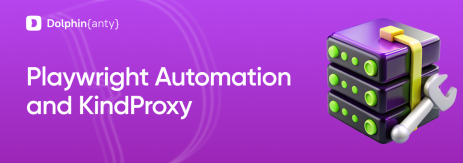Datacenter Proxies vs. Residential Proxies 🤔
Blog » Datacenter Proxies vs. Residential Proxies 🤔
There are plenty of essential tools for online work today with proxies being one of them. Let’s have a closer look at what they are, what the difference between them is, their advantages and disadvantages, which proxy to choose and how to use them in the most efficient way.
What is a Proxy?
🌍 A proxy is a technology for changing your real IP address, which is assigned to absolutely every device when it is going online. The Internet provider in each region has a pool of such addresses. They contain personal data such as geographic information, device location on the network and information about the provider. This information is visible to every website you visit.
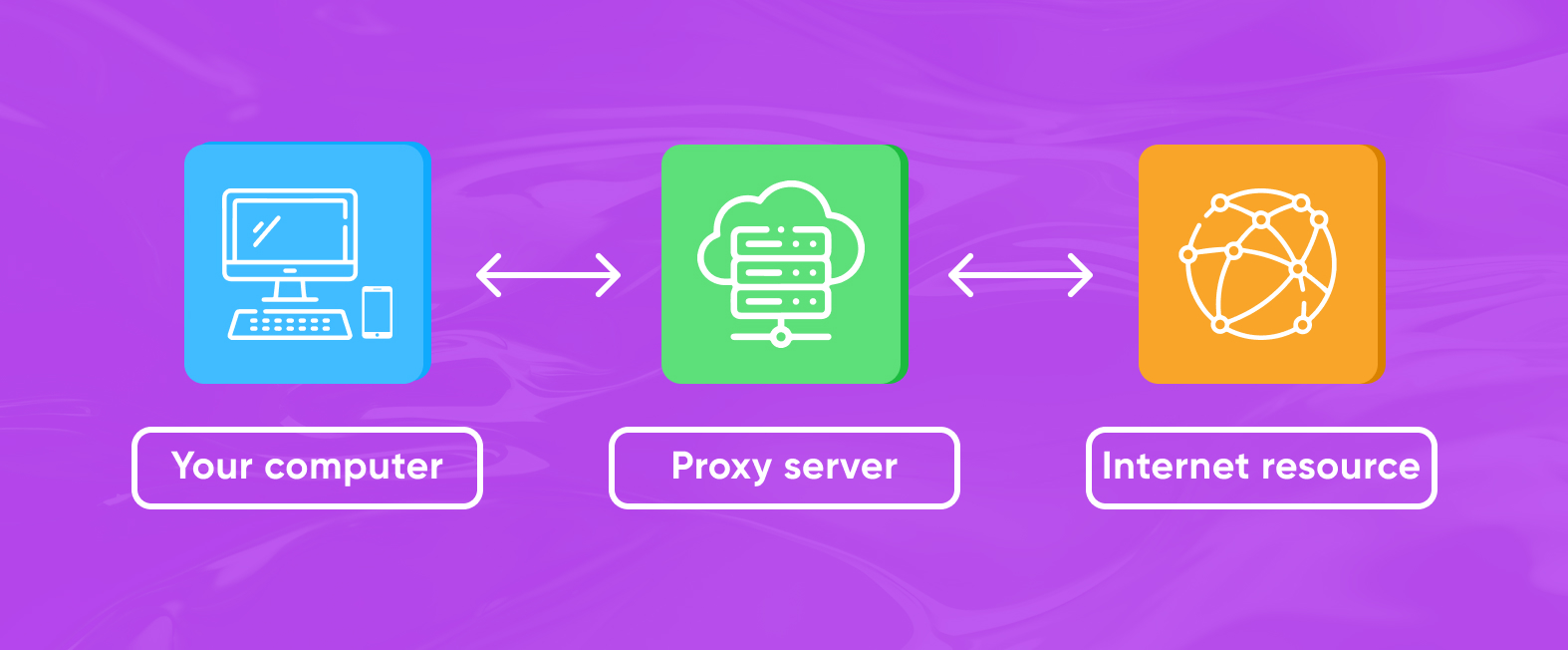
Proxies are used to hide your data, bypass bans if they are imposed, for example, on a provider or country, increase confidentiality and encrypt network traffic. As a result, the site will see you as another person who is visiting it from a completely different country through a different provider.
Thus, a proxy is an intermediary who takes your request, sends it to its server, encrypts it, and only then forwards it to the requested resource, spoofing your data with new one. The request follows the same path in the opposite direction.
What is Proxy used for?
In addition to a higher level of confidentiality, a proxy is widely used to bypass anti-fraud systems, for example, those of FB or Google, since these platforms prohibit creating multiple accounts on one IP or logging into multiple accounts from it. If smart algorithms understand that it is done by one person, then his IP is blocked along with all accounts that are associated with it. This situation can be extremely unpleasant, especially when your work involves multi accounting.
🥷 If you are going to safely manage multiple accounts for affiliate marketing, crypto or other tasks, first of all you will definitely need high-quality proxies.
Difference between Datacenter and Residential Proxies
❗ There are several types of proxies. One of the most popular are datacenter and residential ones. Each of them has its own characteristics, as well as both advantages and disadvantages, which directly affect where to use each type.
What is a Datacenter Proxy?
👍 Datacenter proxies are proxies that are provided to their clients by data processing centers. Therefore, such proxies are often called datacenter proxies. These centers have a powerful infrastructure that allows them to rent out their IP addresses.
The way datacenter proxies work is as follows: a request from the user’s device is sent to a server located somewhere, like, in Germany, and then to the target site. Data from the site is sent back to the server and then to the user. And the site sees such a request as a request from the server, and is generally not aware that the server is sending data from the site somewhere else.
Types of Datacenter Proxies
- public proxies — free, easily accessible, do not encrypt data, and therefore are the most unreliable;
- shared proxies — used by several users, so there is an increased risk of blocking;
- private proxies — used by one user who rented them;
- dedicated proxies — belong to data centers, as they are deployed on their infrastructure.
Advantages and Disadvantages of Datacenter Proxies
Server proxies have both advantages and disadvantages. Let’s start with the strengths:
- high connection speed, unlimited traffic and stability of operation, since data centers usually have large capacities;
- affordable prices and high competition among sellers;
- setup does not require complex manipulations;
- the ability to choose the appropriate type of proxy specifically for your tasks and immediately create the required number.
🤔 But there are some drawbacks:
- increased risk of blocking and detection, since website protection systems (anti-fraud) have learned to recognize proxies from data centers;
- the ability to rent “dirty” IP, which is on blacklists;
- there may be interruptions in operation due to server overload.
What is a Residential Proxy?
Residential proxies are proxies that are owned by “residents” or ordinary Internet users. They are also called home proxies. Their addresses can be used to operate the network when owners connect to it.
Residential proxies provide the best anonymity, since security systems percieve them as the IP addresses of ordinary users from private homes. And banning such proxies is dangerous, because not only bots, but also regular people can suffer. By default, antifraud systems have a much higher trust for such proxies. So individual residential proxies are a perfect match for multi accounting and other important tasks.
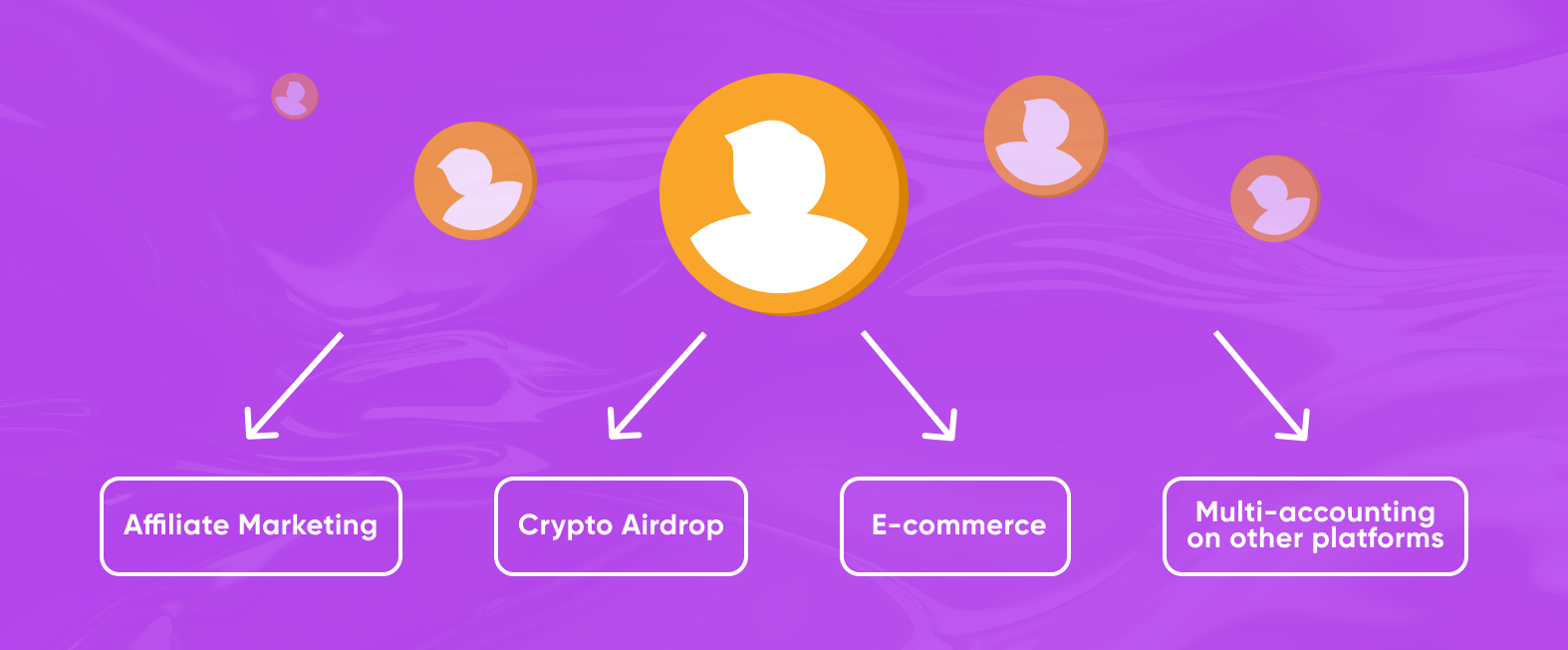
👍 There are also residential mobile proxies. They use IP addresses belonging to mobile operators, which cannot be blocked due to their limited number. This means that they are not unique for each user, and banning one suspicious profile will lead to the banning of absolutely all profiles with the same IP. The main suppliers of such proxies are Internet and mobile providers, but their cost is higher, because not every entity is ready to offer them for purchase.
Types of Residential Proxies
There are two main types of residential proxies:
- dynamic residential proxies — their IP addresses change every time you connect to the Internet or after a certain period of time. Some providers also provide the ability to manually rotate IPs using a special link.
- static residential proxies — use a fixed IP address that does not change and through which all information about the user and his actions on the Internet are recorded.
Besides that, the difference may be in the operating protocol: residential IPv4 proxies differ from IPv6 in a number of parameters. A good service for selling proxies can be determined by the fact that all options are available.
Pros and Cons of Residential Proxies
Residential proxies, like datacenter ones, have their own strengths and weaknesses. Let’s start with the pros:
- a large number of available locations;
- increased reliability due to similarity to real users;
- ease of setup;
- rotation of IP addresses, which can be set at specified intervals for even greater anonymity;
- greater trust from the sites.
🤔 Among the cons we note the following:
- less stable and slower operation compared to datacenter proxies due to the fact that the speed is limited by the speed of a particular provider, and also because in the chain between you and the site, in addition to the proxy server, a resident’s device also appears;
- you can buy residential proxies at a higher price because it is technically more difficult to find and provide them for rent, and also because you pay not for the IP address itself, but for the traffic that passes through it.
Which Proxies are Better: Datacenter or Residential?
⚖️ The choice between datacenter or resident proxies depends solely on what result you want to get.
When is it Better to Use Datacenter Proxies?
Server proxies are better for the following tasks:
- To publish a large number of posts on the Internet, so as not to exceed the publication limit per user for a period of time.
- When promoting pages through mass following and mass liking.
- For data parsing when high speed and connection stability are required.
In addition, datacenter proxies are suitable for analyzing the market, data and content related to a specific geolocation.
🤓 Datacenter proxies are perfect for unimportant tasks and for working on Internet sites with weak protection against fraud, where the main task is to change the IP address.
When is it Better to Use Residential Proxies?
The way residential proxies work is determined by the issues that can be more efficiently addressed with their help.
- To enter the market of specific geos that are blocked or limited for use.
- For affiliate marketing, crypto projects, management of e-commerce platforms, namely the creation of several accounts by one user, which is prohibited by the rules of most of them.
- For other tasks where increased anonymity and maximum similarity with an ordinary Internet user are important.
Cost of Proxies
🤔 The choice of proxies is often influenced by how much they cost. Datacenter ones are cheaper, residential ones are more expensive, but it is better to purchase them in trusted places. A service with the best proxies for the anti detection browser Oxylabs offers you proxies of all types at affordable prices:
- residential proxies — from $4 per Gb;
- mobile proxies — from $5 per Gb;
- rotating proxies from an Internet provider — from $11 per Gb;
- general proxies — from $0.44 per Gb;
- dedicated proxies — from $1.9 per IP address.

How to Use a Proxy Correctly
🔗 A proxy is just one of the tools, which is ineffective alone. It is important that you have reliable software to use and manage them. First of all, we are talking about an anti detection browser, which, in addition to changing your IP address through a proxy, is capable of completely spoofing your digital fingerprint, and therefore your identity. Another advantage of such a browser is that you can create an unlimited number of such unique profiles with your fingerprint and proxy, and therefore register the same number of accounts on any site.
The best experience for using a proxy will be provided to you by the anti detect browser Dolphin Anty, which is one of the leaders on the market. You can bulk add, remove and activate proxies of any type, be they IPv4 server proxies, residential proxies or others.
In addition, there is:
- Separate manager for managing proxy servers

- Support of popular protocols HTTP/S, SOCKS4/5, SSH

- Intuitive and easy-to-use interface

- Mobile proxy IP address rotation and performance check in one click

🤓 Dolphin Anty is designed to work with proxies in multitasking mode. A large selection of options and settings fully meets the needs of affiliate marketers, marketers, crypto-influencers and everyone who wants to secure their online experience.
